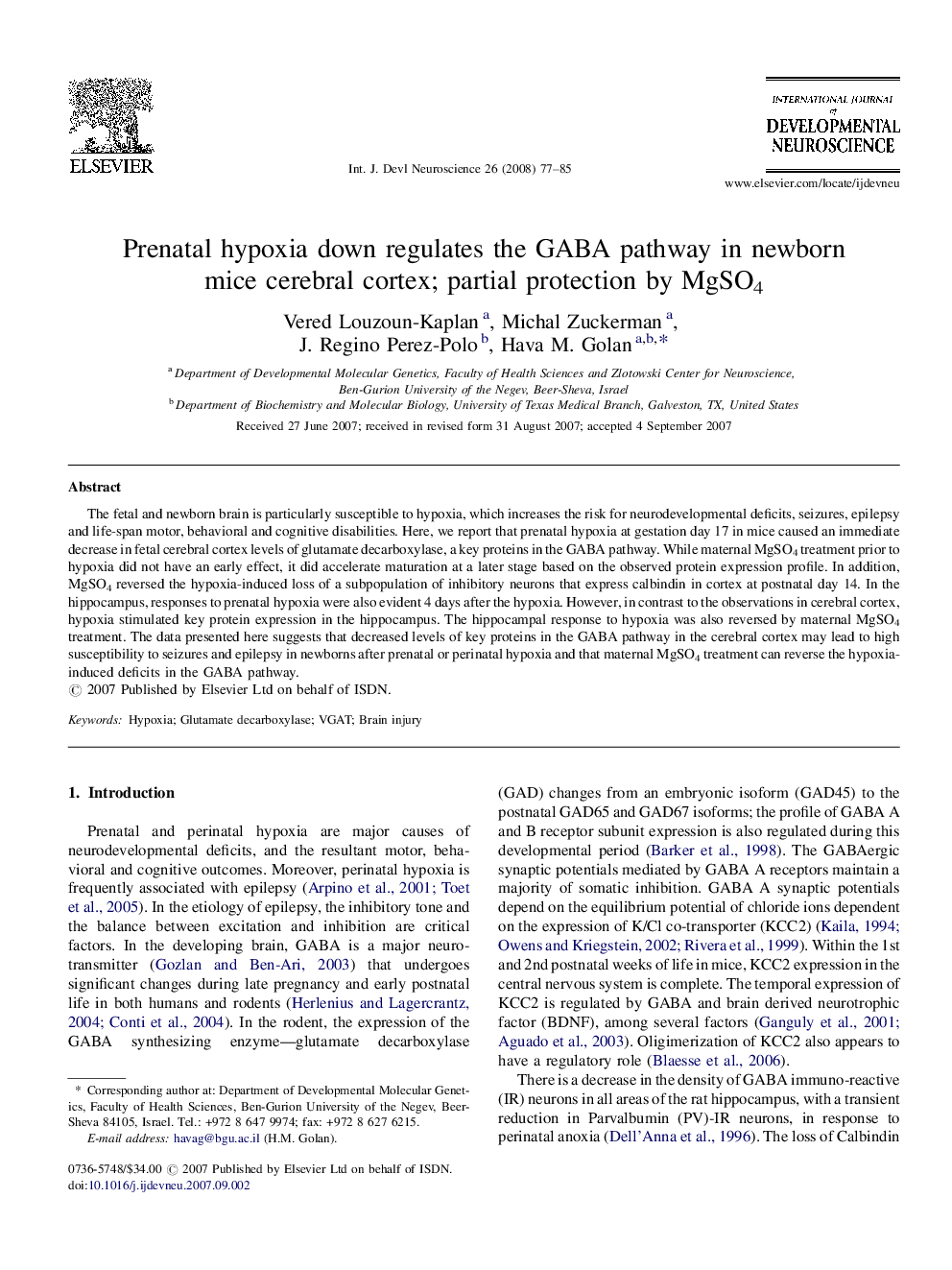| Article ID | Journal | Published Year | Pages | File Type |
|---|---|---|---|---|
| 2787132 | International Journal of Developmental Neuroscience | 2008 | 9 Pages |
The fetal and newborn brain is particularly susceptible to hypoxia, which increases the risk for neurodevelopmental deficits, seizures, epilepsy and life-span motor, behavioral and cognitive disabilities. Here, we report that prenatal hypoxia at gestation day 17 in mice caused an immediate decrease in fetal cerebral cortex levels of glutamate decarboxylase, a key proteins in the GABA pathway. While maternal MgSO4 treatment prior to hypoxia did not have an early effect, it did accelerate maturation at a later stage based on the observed protein expression profile. In addition, MgSO4 reversed the hypoxia-induced loss of a subpopulation of inhibitory neurons that express calbindin in cortex at postnatal day 14. In the hippocampus, responses to prenatal hypoxia were also evident 4 days after the hypoxia. However, in contrast to the observations in cerebral cortex, hypoxia stimulated key protein expression in the hippocampus. The hippocampal response to hypoxia was also reversed by maternal MgSO4 treatment. The data presented here suggests that decreased levels of key proteins in the GABA pathway in the cerebral cortex may lead to high susceptibility to seizures and epilepsy in newborns after prenatal or perinatal hypoxia and that maternal MgSO4 treatment can reverse the hypoxia-induced deficits in the GABA pathway.
